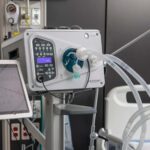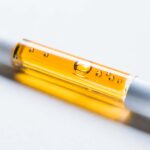The Food Allergy Institute’s study shows that 100% of participants achieved milk allergy remission, with results maintained for at least a year.
RT’s Three Key Takeaways:
- Complete Remission Achieved: The study demonstrated that 100% of the 214 pediatric participants achieved remission from milk allergies, allowing them to consume dairy products without any restrictions, via the immunotherapy approach.
- Safety and Efficacy: The Tolerance Induction Program showed a strong safety record, with only 0.01% of the 56,443 food challenges requiring epinephrine, and all participants maintaining a year of remission without incidents.
- AI-Powered Customization: The innovative immunotherapy approach uses machine learning and AI to create individualized treatment plans, significantly advancing the management of food allergies and promising improved quality of life for affected children.
A study by the Food Allergy Institute has demonstrated that children with severe milk allergies can safely consume dairy products without restrictions through the Tolerance Induction Program, an immunotherapy approach.
The study is published in the Journal of Allergy and Clinical Immunology.
Food allergies affect approximately 8% of US children, equating to about 4.2 million young individuals, and milk allergy is one of the hardest allergies to treat. In this study, 214 pediatric patients underwent the Tolerance Induction Program for milk anaphylaxis.
The Tolerance Induction Program’s immunotherapy leverages machine learning and artificial intelligence (AI) to customize individual treatment plans and map out a dosing strategy, allowing patients to achieve and maintain clinical remission.
Study Results
Researchers say this is the largest study on biosimilar protein immunotherapy for cow’s milk anaphylaxis ever published with 214 pediatric patients enrolled. Key findings show:
- 100% of the participants achieved milk allergy remission. All patients are now able to openly consume unlimited amounts of milk.
- For the study, patients completed 56,443 food challenges, with only six (0.01%) incidents requiring epinephrine.
- All study participants have maintained a year of remission without any incidents necessitating epinephrine.
“This groundbreaking study is a game changer for children suffering from milk allergies. It demonstrates that dairy allergies can achieve remission, enabling children who are anaphylactic today to eventually consume milk without restriction,” says Dr Inderpal Randhawa, the lead researcher and corresponding author, in a release. “As we continue to harness the power of AI in healthcare, this pioneering approach represents a significant leap forward in allergy treatment and personalized medicine, promising a future where milk allergies no longer hinder daily life.”
The study highlights the effectiveness of the Tolerance Induction Program in treating cow’s milk anaphylaxis. This program has also shown effectiveness in treating peanut allergies.
Photo 224318452 © Nina Hilitukha | Dreamstime.com










